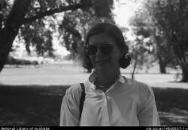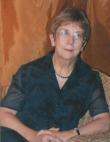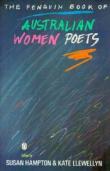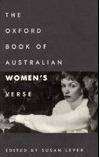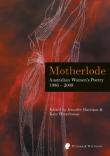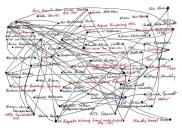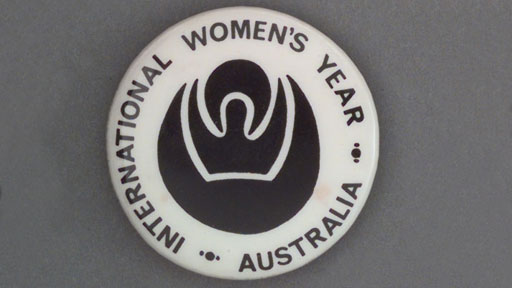AustLit
-
This trail collects a range of items to enhance readers' engagement with Mother I'm Rooted: An Anthology of Australian Women Poets.
– Part One provides an overview of Mother I'm Rooted, its editor Kate Jennings and the genesis of the anthology.
– Part Two highlights the socio-political and literary period within which Mother I'm Rooted was published.
– Part Three focuses on the anthology's design, its poets, its contents and its reception.
– Part Four situates Mother I'm Rooted on the continuum of women's poetry anthologies.
– Part Five offers suggestions for wider reading.
– Part Six provides tips for further research.
Click on the hyperlinks below to visit AustLit records and external references. Some of the critical works and other resources are available online.
-
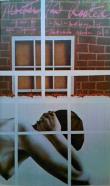 See full AustLit entry
See full AustLit entry'Sheila Rowbotham has written that the political expression of personal experience lies within the domain of novels and poetry. Seldom has this principle been made more apparent than in the anthology Mother, I’m Rooted. It becomes more and more clear with each one of the [152] poets and 542 pages of the book that this is the unambiguous expression of a social consciousness which cannot be glossed over or dismissed as belonging to a “radical” fringe. For these poets speak from all corners of the female social situation in Australia, and cover the whole spectrum of political consciousness … the anthology includes the whole gamut of women’s experience, married, single, lesbian, heterosexual, mothers, workers housewives.
(...more) -
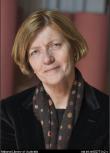 Image by permission of the NLA.See full AustLit entry
Image by permission of the NLA.See full AustLit entryKate Jennings grew up on a farm near Griffith, New South Wales. While earning a Bachelor of Arts with Honours from the University of Sydney during the late 1960s and early 1970s, Jennings was active in left-wing politics and feminism, later editing Mother I'm Rooted (1975), a collection of contemporary women's poetry. In 1975, Jennings published her first collection of her own poems, Come to Me My Melancholy Baby, exploring the trials of being a feminist poet in the 1970s.
-
Kate Jennings was a 'young, outspoken feminist of the '70s ... From the very first ... a shaker of her fist at an unjust world.' (Callil, Carmen.'[Untitled Review].' The Monthly 56 (2010): 70.)
One of Jennings's earliest public appearances was her fierce and defiant 'Front Lawn' speech, delivered at a rally on the lawns of Sydney University prior to a Vietnam moratorium march in 1970. Jennings began the speech:
I would like to speak.
I would like to give a tubthumpingtablebanging emotional rap AND be listened to, not laughed at. You don’t laugh at what your comrade brothers say, you wouldn’t laugh at the negroes, the black panthers. Many women are beginning to feel the necessity to speak for themselves, for their sisters.
I feel the necessity now.
She would later write: 'Everything changed that day.' (Trouble: Evolution of a Radical 2910: 4.)
Five years after the speech, at the age of 26, Jennings wrote her introduction to Mother I'm Rooted. Observing that the 'literary world is for the most part controlled by a small backslapping, backbiting group of men', she spells out her rationale for the anthology: 'The motivation behind this book is feminist ... At first the book was conceived as a neat anthology of already known women writers ... but I asked the publishers if I could advertise around and try and reach women poets Out There'. Jennings's newspaper advertisement drew over 500 responses 'within the space of two months' and the anthology 'slowly metamorphosed into a political statement. It became a collective statement about the position of women in Australia' 'Introduction', unpaged).
-
Listen to Kate Jennings in conversation with Kris Olsson via audio download. The interview with Jennings, conducted on 28 May 2008, is one of the State Library of Queensland's 'Literature and Languages' webcast series.
-
Zora Simic describes the 1970s and 1980s as 'a formative era in which feminism was a crucial contributing factor to, and context for, a more diverse Australian literature in which female writers were integral and numerous'. ('"Women’s Writing" and "Feminism": A History of Intimacy and Estrangement' Outskirts: Feminisms Along the Edge 28 (2013).)
Simic highlights the influence of Women's Liberation in creating 'feminist readers and writers'. She argues that 'consciousness-raising and reading and writing were intimately linked. Within the women’s movement, journals, magazines and newspapers were launched, small presses inaugurated and writing and reading groups formed. Subscription lists charted the explosion in new titles by, for and about women, and feminist bookshops stocked them. Women’s writers’ festivals, poetry readings and book launches were opportunities to find and promote new work, and to meet other feminists ... One of the net effects of all of this activity was that within and outside of the women’s movement, "women’s writing" and "feminism" were increasingly and variously conflated and separated'.
Mother I'm Rooted was published in 1975 – the same year as the United Nations' International Women's Year, and also a time of important changes in Australia's legal and legislative processes (for example, the introduction of the Family Law Act).
Nathan Hollier suggests that 'several texts were significant in this Australian process of emancipation', among them works by Americans Betty Friedan and Kate Millett, and the Australians Germaine Greer and Anne Summers; 'but perhaps the most unlikely' was Jennings's anthology' ('Those Wild Colonial Girls.' Tirra Lirra 9.1 (1998); (p. 24-31)24). Diane Brown and Susan Hawthorne are even more fulsome in their praise, declaring Mother I'm Rooted was 'the most important poetry publishing event of the seventies.' ('Case-Study: Feminist Publishing.' In Paper Empires: A History of the Book in Australia 1946-2005 Ed. Craig Munro and Robyn Sheahan-Bright St Lucia: University of Queensland Press, 2006: 263-268.)
-
The 'mid-1970s to 1980s was a boom time for small press poetry lists ... At the same time a range of new and specifically feminist journals ... and publishing imprints ... were beginning to consolidate.' (Lilley, Kate. 'Between Anthologies: Feminism and Genealogies of Australian Women’s Poetry.' Australian Feminist Studies 12.26 (1997): 265-273.) Among the journals were Hecate, Refractory Girl, Scarlet Woman and Lip; the publishing imprints included Sisters Publishing and Sybylla Press, and, in the 1980s, Women's Redress Press and McPhee Gribble.
Anne Vickery ('The Rise of "Women's Poetry" in the 1970s.' Australian Feminist Studies 22.53 (2007): 265-285) tracks 'the complex relationship between women’s poetry and the radical small press scene of the late 1960s and early 1970s’ (265). She notes: '‘Both New Australian poetry and the recognition of women’s poetry were reliant on a prior, but very important, revolution in print technology that occurred when offset production began replacing letterpress in the late 1960s. Where once there had been a restrictive reliance on conservative, large presses to become published, there was suddenly a freeing up of the poetry market’ (266). Little magazines revolted against 'institutional restraints' (267) and provided 'an ambivalent space for women to be published, a space which enabled visibility at the same time as it mapped out a still small set of positions available for women in the poetic field' (269).
Vickery also notes that, 'from the outset', Outback Press, the publisher of Mother I'm Rooted, 'was supportive of new poetry, women’s writing, and of projects that were feminist in outlook’ (273). Outback Press was initiated in 1973 by businessmen Morry Schwartz and Fred Milgrom, author Colin Talbot, and musician Mark Gillespie. A matter of weeks after the press opened, the Literature Board of the Australia Council began awarding grants – Outback Press was among the first recipients. (Button, James. 'The Art of the Deal.' The Age 20 March 2004: E1.)
- For more on Schwartz’s publishing journey, see: Legge, Kate. ‘Paper Tiger.’ The Australian Magazine 14 December 2013: 20.
- For more on the establishment of small presses in the 1970s, particularly feminist presses, and for a list of women-operated journals, bookshops, presses and other enterprises with feminist input, see Anna Couani’s 'Women in the Literary Small Press.' Telling Ways: Australian Women's Experimental Writing. Adelaide, South Australia: Australian Feminist Studies, 1988: 9-14.
- To read more about the organisational and institutional elements that enabled the promotion of Australian women’s writing during the 1970s and 1980s, see: Gillian Whitlock's 'Voices from the Past: Gender, Politics, and the Anthology.' Resourceful Reading: The New Empiricism, eResearch and Australian Literary Culture. Sydney: Sydney University Press, 2009: 274-295 and David Carter's 'Publishing, Patronage and Cultural Politics: Institutional Changes in the Field of Australian Literature from 1950.' The Cambridge History of Australian Literature. Ed. Peter Pierce. Cambridge: Cambridge University Press, 2009: 360-390.
-
'Anthologies of any kind of writing serve as monuments ... Anthologies appear to be a record of some kind of positive knowledge or corpus and accordingly present themselves as printed forms of factual evidence representing various literary genres, kinds of journalism or bodies of knowledge. But as monuments they also seek to commemorate, that is, give value to, this factual evidence.'
Holden, Steve. 'Short Story Anthologies and "the Solid Body of Australian Fiction"' Australian Literary Studies 19.3 (2000): 279.
-
'Mother I’m Rooted was a zeitgeist text and was packaged accordingly, with photographs of a semi-naked woman cleverly foregrounded against a collage of windows, barbed wire and glimpses of contemporary advertising and pornography by feminist artist Ann Newmarch thus inviting recognition of "the shock of the feminist" ([Margaret] Henderson 117) in the 1970s'. (Simic, Zora. '"Women’s Writing" and "Feminism": A History of Intimacy and Estrangement.' Outskirts: Feminisms Along the Edge 28 (2013).)
Other critics who comment on the cover images include Ann Vickery in 'The Rise of 'Women's Poetry' in the 1970s.' Australian Feminist Studies 22.53 (2007): 265-285, and Nathan Hollier in 'Those Wild Colonial Girls.' Tirra Lirra 9.1 (1998): 24-31.
-
Over 1,000 poems were submitted to Jennings for her consideration (Vickery, Ann. 'The Rise of 'Women's Poetry' in the 1970s.' Australian Feminist Studies 22.53 (2007): 274). She selected 300 of these, representing a total of 152 contributors. Some, including Joanne Burns, Judith Rodriguez and Vicki Viidikas, had already been published in small presses and feminist publications; some, including Colleen Burke, Lee Cataldi, Antigone Kefala and Jennifer Maiden, 'released their first books roughly around the same time' (Simic, Zora. '"Women’s Writing" and "Feminism": A History of Intimacy and Estrangement.' Outskirts: Feminisms Along the Edge 28 (2013)).
Among other contributors are those who would become better known in other literary or professional fields. These include Mona Brand (drama), Angela Catterns (radio presenter), Beatrice Faust (activist and academic), Helen Garner (fiction and non-fiction writer) and Finola Moorhead (novelist and short story writer).
Kate Lilley ('Between Anthologies: Feminism and Genealogies of Australian Women’s Poetry.' Australian Feminist Studies 12.26 (1997): 265-273) highlights some poets who launched their first books around the time of Mother I'm Rooted's publication, but who do not appear in the anthology: J. S. Harry, Dorothy Porter, Jennifer Strauss, Fay Zwicky, Ania Walwicz, Gig Ryan and Susan Hampton (266). And, 'perhaps predictably', says Ann Vickery ('The Rise of 'Women's Poetry' in the 1970s.' Australian Feminist Studies 22.53 (2007): 265-285), 'an earlier generation of women writers like Judith Wright, Rosemary Dobson, Gwen Harwood, and Dorothy Hewett who were already achieving a degree of distinction through the established system of values' are also absent from Mother I’m Rooted (276).
-
Women Poets - A Sampling of Poets with Collections Published in 1975
-
Dennis Haskell ('Poetry Since 1965.' The Oxford Literary History of Australia. Ed. Bruce Bennett, Jennifer Strauss and Chris Wallace-Crabbe. Melbourne: Oxford University Press, 1998: 265-285) describes Mother I'm Rooted as a 'deliberately unedited feminist anthology' (273). The poems are arranged in alphabetical order by the poets' last names; some pages are numbered, but not all; and there is no index.
Nathan Hollier ('Those Wild Colonial Girls.' Tirra Lirra 9.1 1998:24-31) notes that Jennings’s strategy of advertising in order to reach potential contributors to the anthology implied that notions of literary 'standard' at the time were 'gendered and oppressive' (24). The resultant contents form 'neither a careful selection by a formally credentialed "gatekeeper", nor the "finest" poetry available', but the anthology is 'genuinely radical, and it had an effective political impact’ (25).
In her 2013 article 'Generations of Women Poets: Sisters Publishing is Established' (Telling Stories: Australian Life and Literature 1935–2012 (2013): 363-370), Susan Sheridan , writes that Mother I’m Rooted was 'a product of women’s liberation’s most radical phase' and 'represented a large number of contemporary woman from outside the traditional poetry world' (363). 'Poetry of the intensely subjective and often confessional kind that abounded in the 1970s was an ideal vehicle for expressing the women’s liberation principle that "the personal is political"' (369).
The poems in the anthology are indeed personal. Peter Howarth wrote a review of Mother I'm Rooted titled 'Out of Nightmares into the Sun' for second issue of the newly established, and avowedly feminist and socialist, journal Hecate. In the review, Howarth described the collection as 'the unambiguous expression of a social consciousness which cannot be glossed over or dismissed as belonging to a "radical" fringe ... the anthology includes the whole gamut of women’s experience, married, single, lesbian, heterosexual, mothers, workers housewives. Poets, they speak out in tones of despair, anger, melancholy, loneliness, solidarity, sardonic bitterness, humour, hope and hopelessness' (87).
-
Twelve years after the publication of Mother I'm Rooted Kate Jennings wrote that the anthology 'was ignored by the literary establishment. In their eyes, we were a bunch of ratbag harridans, which we were to some extent. We were having a ball’ ('Wrangles, Yawps and Awful Moans.' Vogue Australia 31.11 (1987): 74). She also said, in 1993 ('What a Summer that Was.' Island 57 (1993): 64-65): 'It is no exaggeration to say that the effect of Mother I’m Rooted on the Australian poetry world was cataclysmic' (65). The 'animosity and incredulity' its publication engendered 'had to be experienced to be believed ... The boys were beside themselves. Their books sold one hundred, two hundred copies, maybe. Along came Mother I’m Rooted and sold 10,000 ... It was one of those rare occasions when a book of poetry had a social as well as a literary impact – it was the right book at the right time' (65).
Mother I'm Rooted was launched at the Sydney Town Hall on International Women's Day. Its sales were beyond expectation. 'Despite the fact that some bookshops refused to stock a book with such a sexually loaded title, the [initial] print run of 4,000 copies was immediately sold, with many copies going to readers who rarely read poetry' (Sheridan, Susan. 'Generations of Women Poets: Sisters Publishing is Established.' Telling Stories: Australian Life and Literature 1935–2012 (2013): 363).
Kay Schaffer, in an 'untitled review, gave voice to the feminist spirit of the times when she wrote: ‘The writing of poetry in one’s own voice ... becomes a political act. It sets up the conditions which promote a radicalized consciousness out of which the need for social change becomes apparent ... The individual poems, when seen collectively, begin to detail with striking clarity a growing awareness of the oppressive nature of female existence in a capitalistic and paternalistic culture’ (Refractory Girl 9 (1975): 48). Mother I'm Rooted was also reviewed in 1975 in Hecate (see 'The Contents' section above), Meanjin Quarterly (by anthology contributor Finola Moorhead) and Westerly. The five-page Westerly review of the anthology and Jennings's own selected work Come to Me My Melancholy Baby by Carl Harrison-Ford is footnoted with an editorial note: 'Poets Fay Zwicky and Dorothy Hewett were also asked to review Kate Jennings’ books. Both were very critical of the books and did not wish to review them' (75).
According to AustLit data, Mother, I’m Rooted was not reviewed in Overland, Southerly, Makar, Poetry Australia and New Poetry – each of which regularly reviewed poetry in 1975.
-
Kate Lilley, in 'Between Anthologies: Feminism and Genealogies of Australian Women’s Poetry' (Australian Feminist Studies 12.26 (1997): 265-273) provides an 'analysis of a sequence of iconic texts in and for the history of Australian women’s poetry' (272). She begins her discussion with reference to the 'first women-only anthology of Australian women writers' – Harriett Martin's short story compilation Coo-ee: Tales of Australian Life by Australian Ladies. published in 1891 and available online as part of AustLit's Full Text collection. Lilley then focuses on three poetry anthologies: Mother I'm Rooted ('remarkably ... the first anthology of women’s poetry published in Australia'), Susan Hampton and Kate Llewellyn's The Penguin Book of Australian Women Poets (1986) and Susan Lever's The Oxford Book of Australian Women's Verse (1995).
Despite Robert Gray's assertion (in his review of the 1986 anthology, 'Some Thoughts on the Women's Anthology.' Island 29 (Summer 1986-1987): 58-63) that 'there is no such thing as a woman poet' and that to 'insist on the sex of the person is an irrelevance and an impertinence', other anthologies with female-only authorship have been published. These include: Frictions: An Anthology of Fiction by Women (1982) and Motherlode (1996), both published by the feminist Sybylla Press, and Mud Map (2013), a special issue of the journal TEXT. Anna Gibbs, in her introduction to Mud Map explains that the project was conceived 'as a "landmark anthology" of Australian women’s experimental writing in the vein of the maps made by collections of the 1970s and 1980s', namely Mother I’m Rooted and Frictions.
-
Women's Writing Anthologies - A Sampling from the 1980s, 1990s, 2000s and 2010s
-
- Pamela Brown, ten of whose poems are included in Mother I’m Rooted, provides an insight into the Sydney poetry scene at the time of the anthology's publication in 'Sydney Poetry in the 70s: In Conversation with Corey Wakeling.' Cordite Poetry Review 38.0 (2012).
- Mark Roberts, in 'Towards a New Diversity: Martin Johnston and the New Australian Poetry.' Island 58 (1994): 60-63), incorporates some reflections on Mother I’m Rooted into his discussion of the Generation of ’68 poets and the 1979 publication of John Tranter’s The New Australian Poetry anthology. (Tranter’s anthology included only two women poets – Vicki Viidikas and Jennifer Maiden – both of whom are represented in Mother I’m Rooted.)
- For further information on Mother I'm Rooted's cover designer Ann Newmarch, see her CLARA: Database of Women Artists entry.
- To investigate broader issues relating to gender and poetry, see: Barbara Giles's 'Where to Now? Recent Poetry by Women in Fine Line 4 (1988): 82-87; David Brooks and Brenda Walker’s Poetry and Gender: Statements and Essays in Australian Women's Poetry and Poetics (1989) and Ann Vickery’s Stressing the Modern : Cultural Politics in Australian Women's Poetry (2007).
- For an account of Jennings's correspondence with Les Murray on the subjects of women's writing, publishing opportunities for women and 'separatism', see 'Wrangles, Yawps and Awful Moans.' Vogue Australia 31.11 (1987): 74, 76.
- for an overview of the publishing of anthologies in Australia, see Gillian Whitlock 'Voices from the Past: Gender, Politics, and the Anthology.' Resourceful Reading: The New Empiricism, eResearch and Australian Literary Culture Sydney: Sydney University Press, 2009: 274-295.
-
- There is additional information in AustLit about Kate Jennings and Mother I'm Rooted – follow the links within Kate Jennings's record and the record for Mother I'm Rooted to explore more.
- To further investigate topics such as Australian women poets who published selected works of poetry in 1975 go to the AustLit search page and explore the Advanced Search options. For help on building searches, visit the 'How to Search AustLit' page.
- Some of the poets included in Mother I'm Rooted are included in the Australian Poetry Library website. See, for example, poems by Pam Brown, joanne burns and Judith Rodriguez.
- To discover more about the women's movement in Australia during the 1970s, see the following:
– Women's Electoral Lobby website
– The National Archives of Australia fact sheet ‘International Women's Year, 1975’
– ABC Radio's 80 Days That Changed Our Lives website (includes sound clips from the inaugural edition of the ABC’s Coming Out Show, broadcast on 8 March 1975, when 'reporters took to the streets to record some of the excitement of the International Women's Day demonstrations')
and
– Magarey, Susan. 'Women's Liberation Movement.' The Encyclopedia of Women and Leadership in Twentieth-Century Australia (2014).
-
International Women's Year Badge
In International Women's Year (1975), the Whitlam Government 'announced a series of funded initiatives to "change attitudes, reduce discrimination and encourage women's creativity" ... Women's rights were endorsed as a political issue and Federal money was made available to feminist causes.'
Source: 'Women Recognised as Stakeholders in International Women's Year.' Australian Broadcasting Commission, 80 Days That Changed Our Lives website.
You might be interested in...



